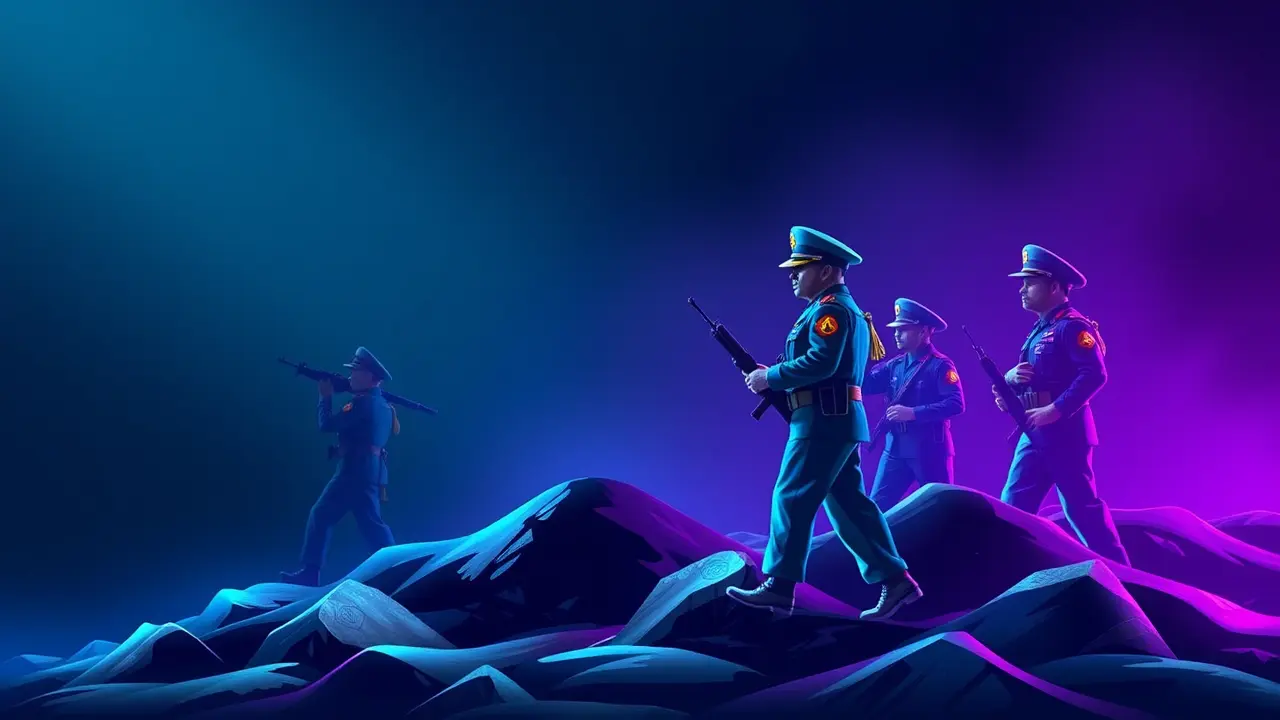Army unit claims control in Madagascar coup attempt.
The political foundations of Madagascar, an island nation perpetually teetering on the precipice of instability, were shaken this Sunday as a faction within its military apparatus moved to assert control, a development that carries the distinct, acrid scent of a coup attempt. While the official narrative from the minister of armed forces was a carefully worded acknowledgment of an officer selected by a military group—a group that has thrown its weight behind demonstrators demanding the resignation of President Andry Rajoelina—the subtext is a thunderclap of political risk that analysts have been tracking for months.This is not an isolated event but the culmination of a protracted, low-grade political fever that has gripped the nation since Rajoelina's contentious re-election, a process boycotted by most opposition candidates and marred by allegations of an unlevel playing field. The officer in question, whose name has yet to be widely circulated, is now positioned as the de facto army chief by this dissident military faction, creating a perilous duality of command that fractures the very institution meant to be the ultimate guarantor of state sovereignty.Such a schism is the classic precursor to broader conflict, echoing scenarios we've modeled from Sudan's ongoing tragedy to the Sahel, where military fissures have led to protracted civil strife. The immediate trigger appears to be the widespread public discontent over a deepening economic crisis and perceived governance failures, but the underlying fault lines run much deeper, tapping into historical ethnic tensions and the long shadow of the 2009 coup that first brought Rajoelina to power.The strategic implications are profound; Madagascar is a critical Indian Ocean node, and its destabilization opens a vacuum that external actors, from regional hegemons to criminal networks, are all too eager to fill, potentially disrupting vital maritime trade routes. The international response will be a key indicator; will regional bodies like the African Union, with its historical aversion to unconstitutional changes of government, move decisively to mediate, or will geopolitical calculations and a weariness of African crises lead to a tepid reaction that effectively greenlights the plotters? For investors and global markets, the primary vector of contagion is not direct exposure but the knock-on effects on commodity flows and regional security premiums.The most probable near-term scenario involves a tense standoff, with Rajoelina attempting to rally loyalist units while the dissident group consolidates its hold over key barracks in the capital, Antananarivo, a city already simmering with protest. However, the risk of escalation into open armed confrontation is significant, a scenario that would plunge one of the world's most unique biodiversity hotspots into a human catastrophe. The coming 48 to 72 hours will be critical in determining whether this remains a contained military mutiny or morphs into a full-blown transfer of power, setting a dangerous new precedent in a region already buckling under the weight of democratic backsliding.
It’s quiet here...Start the conversation by leaving the first comment.
